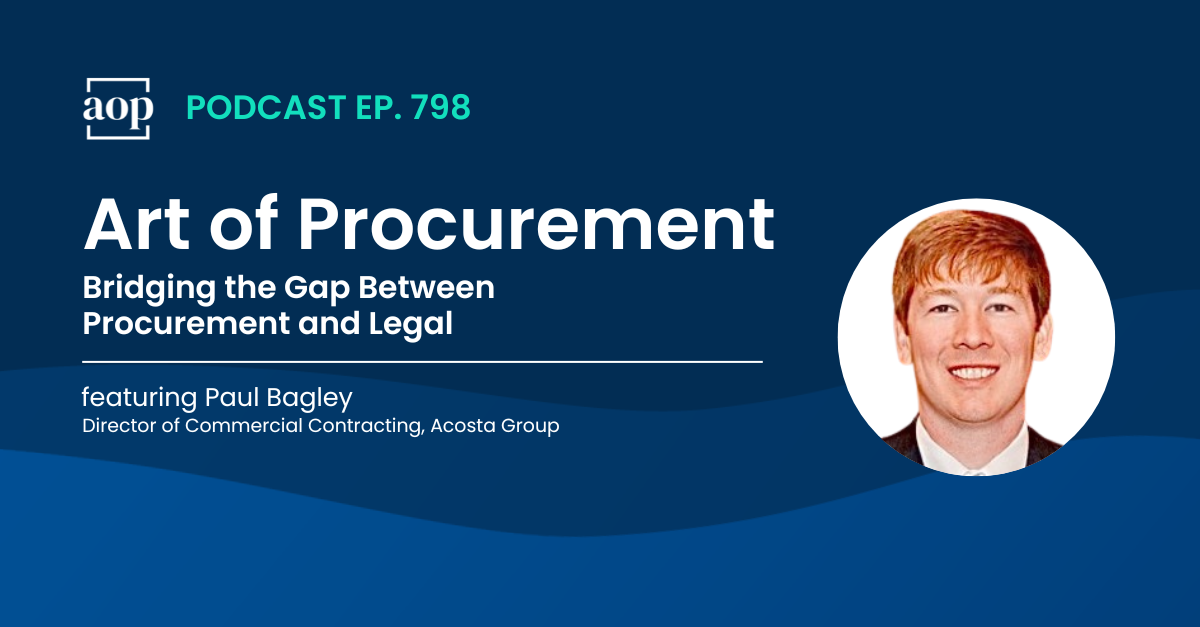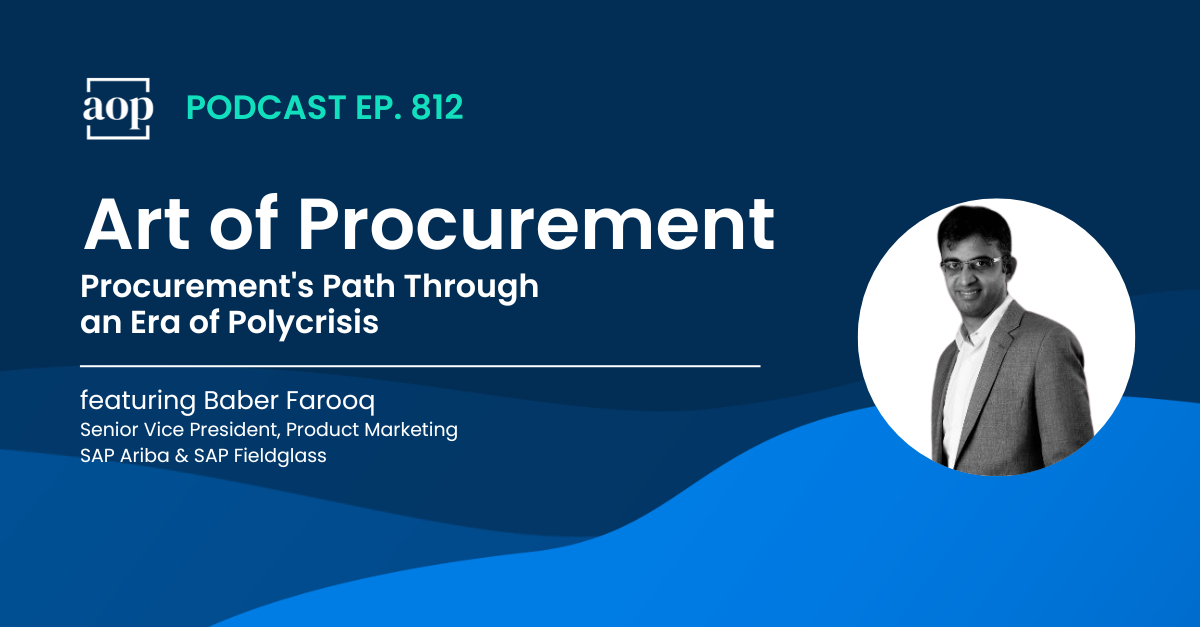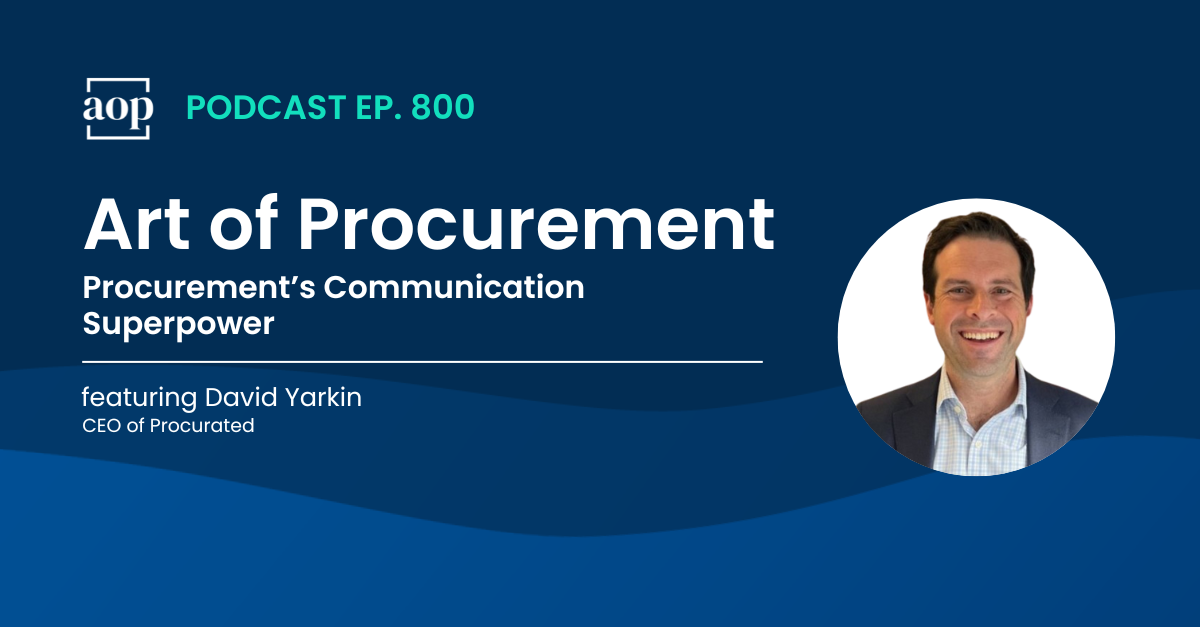
“I understand that tension between procurement and legal could happen, but it really is a disservice to each other. It's like two brothers fighting. It doesn't make any sense?”
- Paul Bagley, Director of Commercial Contracting, Acosta Group
Historically, the relationship between procurement and legal has been plagued by tension, friction, and sometimes even outright conflict. But, as Paul Bagley, Director of Commercial Contracting at Acosta Group, told me in a recent podcast episode, it doesn’t have to be that way.
Paul is uniquely positioned to understand the nuances around the relationship between procurement and legal. He’s a trained attorney who is also experienced in procurement, and because of that perspective Paul understands what it takes – on both sides – to bridge the gap so that procurement and legal can become the true collaborators and partners they were always meant to be.
Here, in Paul’s own words, are some insightful moments from our conversation:
Three Key Levers of Contract Negotiation
"You can't really do a full deal, a full contract negotiation without balancing your timing, your price, and your risk. Those are always my three levers."
Setting Clear Expectations Through Category Management
"If category management is done well, then those issues are exceptions, not the rule. From the beginning, if you have every new vendor and every renewal and every incremental purchase mapped out. When they have to put in the contract how long we expect it to take, when the contract is executed, and the budgeted amount, it becomes a roadmap for your whole year."
Removing Barriers Between Teams
"I think the best way for legal and procurement to work together is to remove barriers and have them collectively manage internal clients. So if your requester comes in, they look at you and the legal team as a team and they see that you're working together. And whatever procurement says is because they've already spoken to legal. We've already had these discussions and we're in lockstep with each other."
Procurement as the Lead Negotiator
"The procurement lead is the lead negotiator. So you pull in everyone that is involved in the contract negotiation immediately. Whether it's your insurance group, your compliance group, your legal team. And then all those people have a discussion with the business on the line or in the room. And then we can all set expectations for how this purchase is going to go together."
Legal Doesn't Need to Be in Every Room
"If legal is always in the room, I think you're in a bad place. Buyers or procurement individuals should be able to negotiate almost every type of statement of work or every type of order form without a legal individual in the room."
Empowering Procurement with Clear Guidelines
"The legal team should be working with your procurement or your head of procurement to create fallback provisions for both business terms and legal terms that they feel comfortable with."
The Power of Frontloading Contract Terms in RFPs
"I am shocked when we're making million dollar purchases and we're going out to RFP and we're not considering what their response to our agreements will be because you have no clue what the timeline is going to be for the purchase. And you have no clue what the risk is out in the marketplace. You've wasted your best opportunity."
Creating Joint Intake Processes
"Our legal team does have an intake form, but I think that's not where the intake form actually should live. It should be wherever the actual internal customer is. The best way for legal and procurement to work together is to remove that barrier and have them collectively have a client internally."
Moving Beyond Lowest Cost
"Procurement does itself a disservice by being the grim reaper of vendors, like the mindset that we have to strip out all the margin of the vendor. What winds up happening is that you get vendors that are not really willing to go the extra mile, but they're not being paid a lot."
Staying Current on Contract Law
"For procurement or professional services and larger outsourcing type agreements, they should take another look at contract risks or law every two to three years. For software agreements, I would do the same, but err on the two years. Software, you're one to two years. It really does change, like especially for the next five where of course AI is changing everything.



.png)
